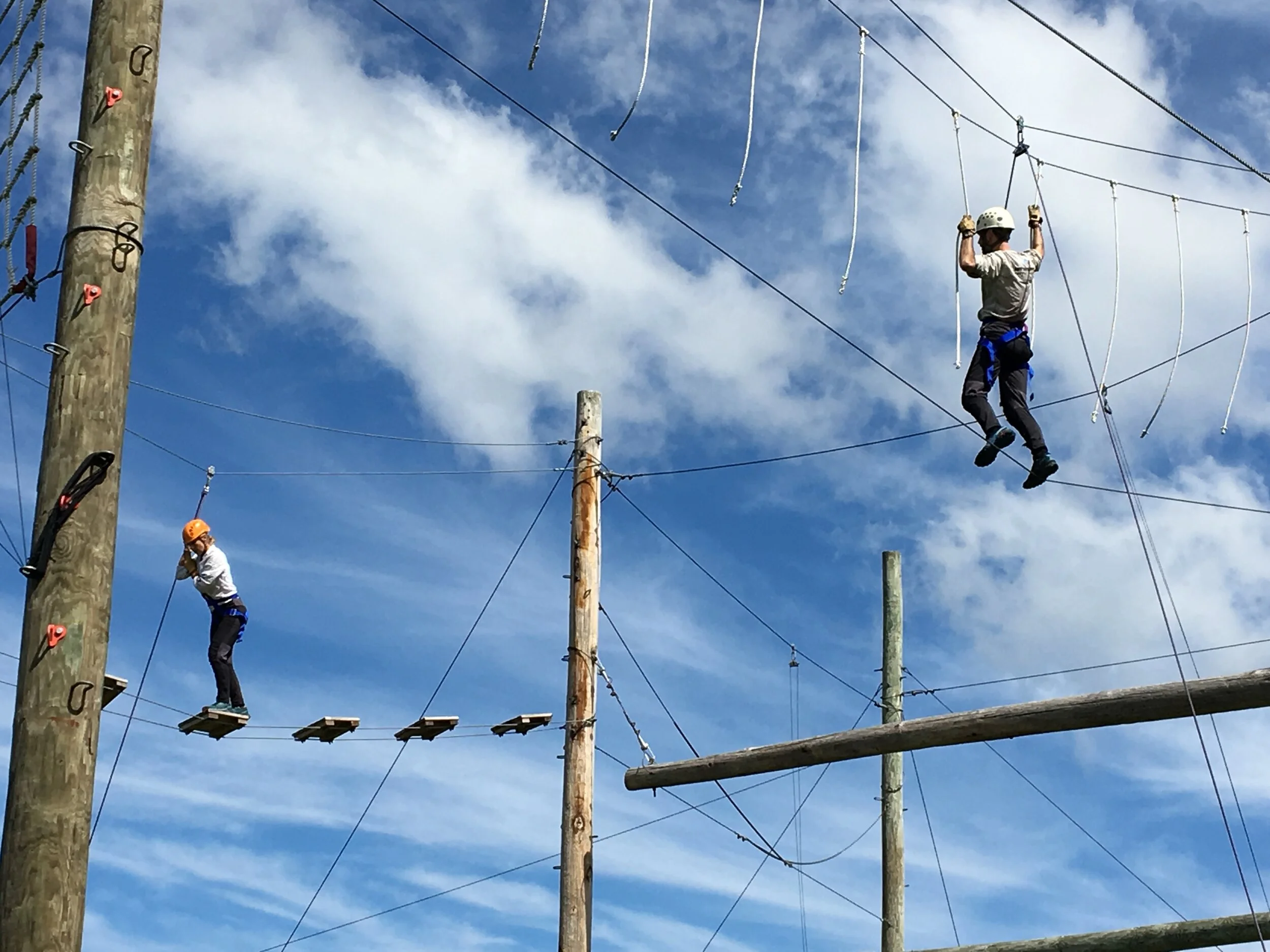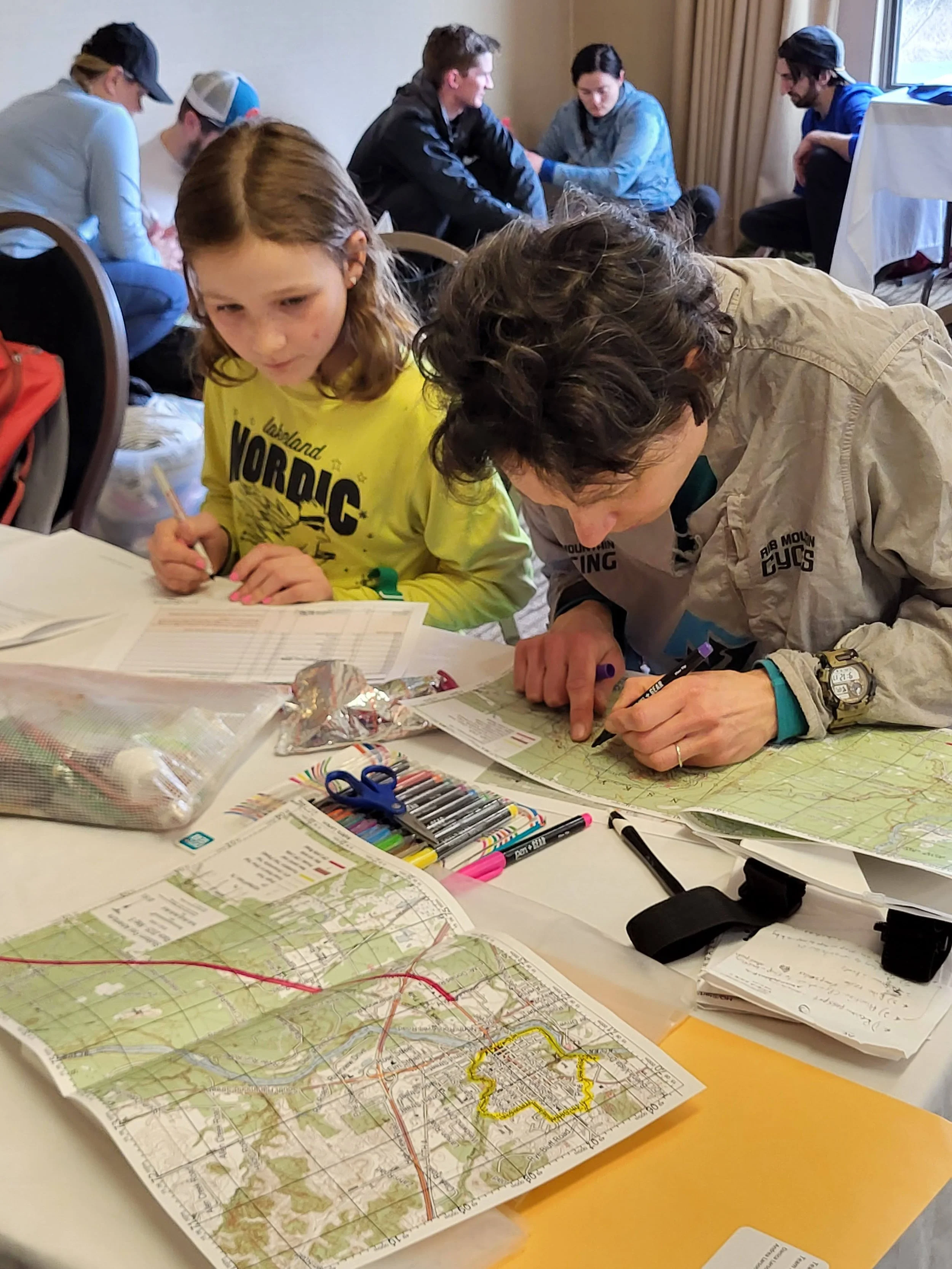Welcome to Adventure Racing Part 2
With the Rib Mountain Adventure Challenge drawing closer and finding that about half of our registrants are first-time adventure racers, I thought it would be helpful to share a bit of what to expect in this unique sport. This is the second of a two week series to welcome newbies to the sport where I’ll share what I’ve learned since I was brand new to the sport a decade ago. Check out tips 1-4 in part 1 here.
5) Practice makes better, but not perfect
Each teammate brings a different skillset to the team.
Although practice is the key to improvement, perfection is like a unicorn in adventure racing (AR). Our navigator, IRONBULL board president Tim Buchholz , a veteran of over one hundred adventure races (with nearly half of them overall wins), can only recall less than a handful of flawless races. Why? Because adventure racing has multiple variables. Some in your control, but many not.
6) Teamwork
Because you will get lost or have another mishap on the race course, pick teammates that have a “can-do” attitude and can recover from unplanned circumstances.
Every team that attempted these rapids ended up in the water, not just ours!
Also, rely on your teammates - very few people are all-in-one seasoned trail runners, roadies, mountain biker, and paddler. If you’re like me with a goal simply not to tip over the canoe (although there have been some close calls, I have yet to tip a canoe over!), I lean on my teammates who are proficient paddlers and we do just fine. Remember if you’re not a great runner that you’ll be walking most of the time anyways. You will also have plenty of time to catch your breath when you’re lost (I mean reading the map). And if you don’t have a clue on how to change a bike tire, make sure you have a teammate with that skill set (once we had a special challenge they had to do it blindfolded!).
7) Faster doesn’t mean better
For adventure racing, speed isn’t necessary. Unlike marked courses, where the first one to the finish line is the fastest, a slow moving team may often win races since they race smarter.
Instead of running in the woods fast and guessing where to go, top teams move methodically in the right direction. For every step in the wrong direction, a team must backtrack to return where they started before they can set off towards the next checkpoint.
Special challenges can include anything - such as a high ropes course!
8) Strategy
Everything in adventure racing can involve strategy: from the teammates you choose to race with, what to pack, and route choices. However, most beginners don’t realize that skipping parts of the course is often part of the race strategy too. Most of us come from a background of racing where not finishing the entire course is a DNF (did not finish). DNF often equates to failure in these sports. But in AR, often the winning team has to skip portions of an adventure race since the course is unclearable (meaning that no team is able to finish the course in the alloted time). But whatever you do, make sure you arrive to the finish line before the cut off time - otherwise you’ll be penalized.
9) Learn from veterans
If your teammates are all new to the sport, you’ll find the adventure racing community very helpful and friendly - so ask questions. I can’t recall anyone that didn’t want to flatten the learning curve for a new racer. And, if you keep at it, you’ll find yourself mentoring others in no time. Meet one of our racers Bill and read some tips from Bill here.
Giving yourself plenty of time to plan your route is important to starting off the day in the right direction!
10) Be ready for plenty of adventure!
Since portions of the course may remain secret at the race start, it’s possible to carry paddles for hours just to use for minutes. Yes, it has happened. But even better, experiencing hidden gems, overcoming challenges, and most of all experiencing it alongside teammates.
Attitude is key to having a good race experience - and just remember, it’s all part of the adventure! Hope to see you at the Rib Mountain Adventure Challenge!
Related posts:
Resources:





